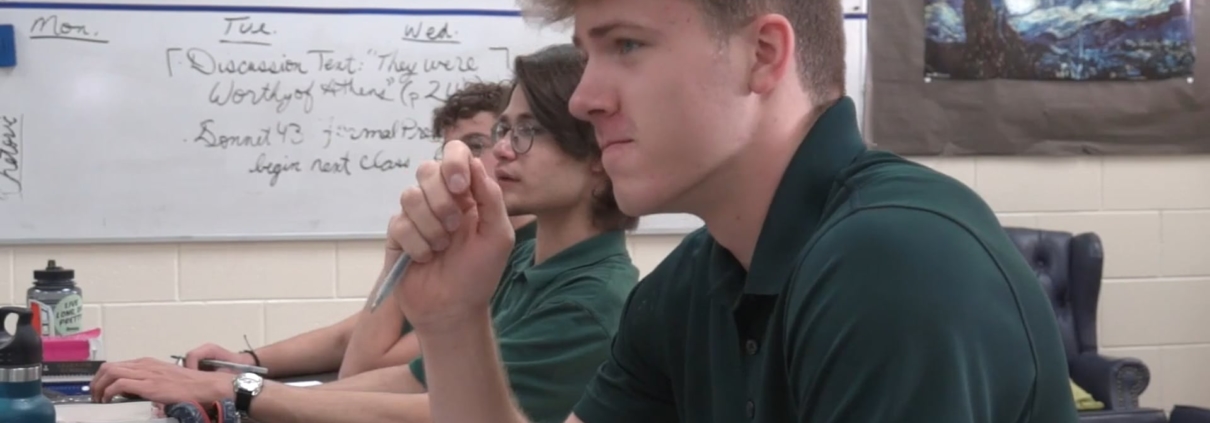(DENVER) In one ethnically and economically diverse community, many had doubts that their students would be able to tackle a rigorous curriculum based on the classics. But as it turns out, the students are rising to the challenge and really learning to understand even the most complex writings.
“So this has the added benefit of concealing identities, what could possibly go wrong,” said teacher Ralph Pesce.
Pesce engages high schoolers to really dig in and think about classical literature.
Reading the classics is part of the integrated humanities curriculum at Bishop Machebeuff High School in Denver, a school serving many economically challenged and ethnically diverse students.
Ralph Pesce/ Teacher
“Studying the history, studying the literature, and the reason we do that is we really want to see an integrated formation and understanding of how society has developed over time,” said Pesche.
But when the effort to change it first came up four years ago, Assistant Principal Harold Siegel admits it was risky because not everyone was sold on the idea.
“There were two groups of naysayers; one was the ones that wanted a traditional AP curriculum,” said Siegel. “They wanted to be working towards, teaching towards a test. The other were the ones who said this is too difficult, this is not what my student is used to, my son or daughter is used to, it’s far too challenging, it’s far too difficult.”
Sean McGarrity, a senior, along with his mother are both believers now in the curriculum upgrade.
“I remember in elementary school, trying to get Sean to read poetry, Sean played football, football players don’t read poetry mom,” said parent Sonia McGarrity. “This year he became a lover of poetry and a lover of Shakespeare.”
Elizabeth Gallegos, a senior, credits the curriculum for helping her win a four year scholarship to the university of her choosing.
“Definitely helped as I was writing these applications, not just for the scholarship, but to a lot of the schools I was applying to,” said Gallegos.
A school that challenges and academically elevates students no matter what socio-economic background they come from.
“Whether its literature whether its history whether it’s politics whether it’s just social sciences we want them to be able to articulate and ponder things a classical education does that,” said Siegel.
|
ReplyForward
|



